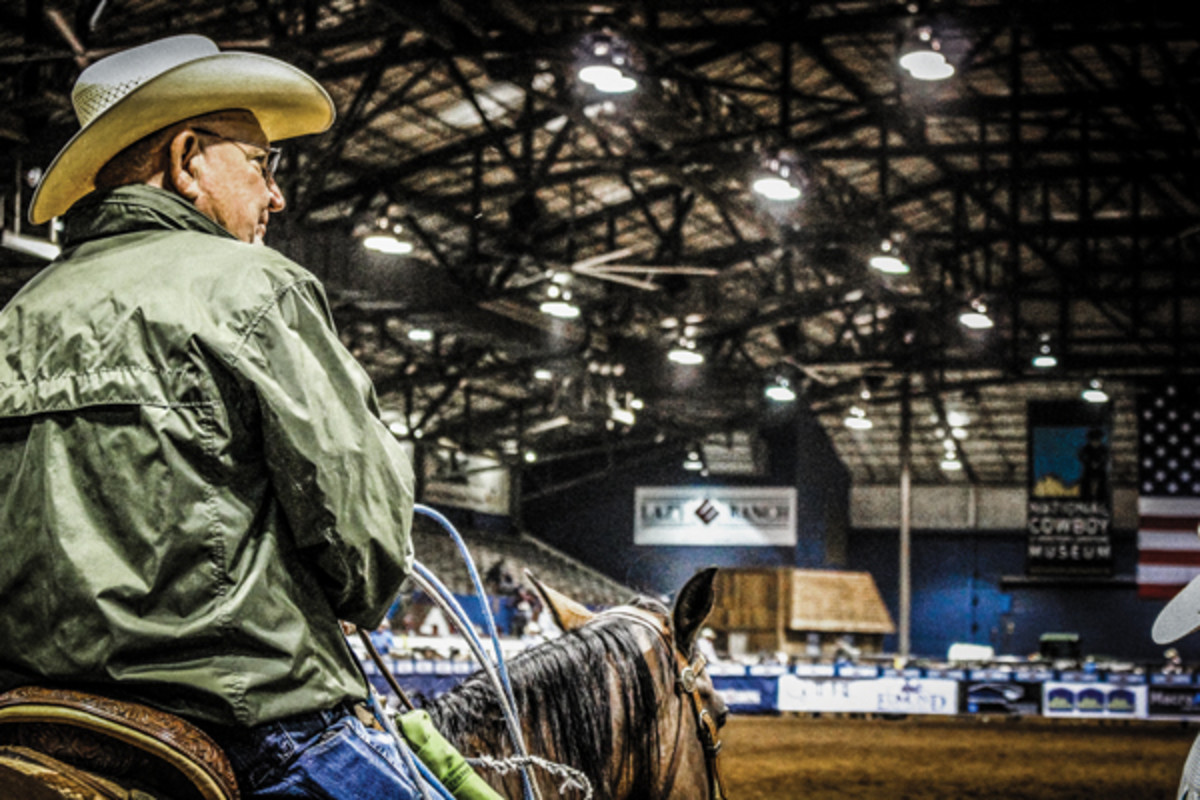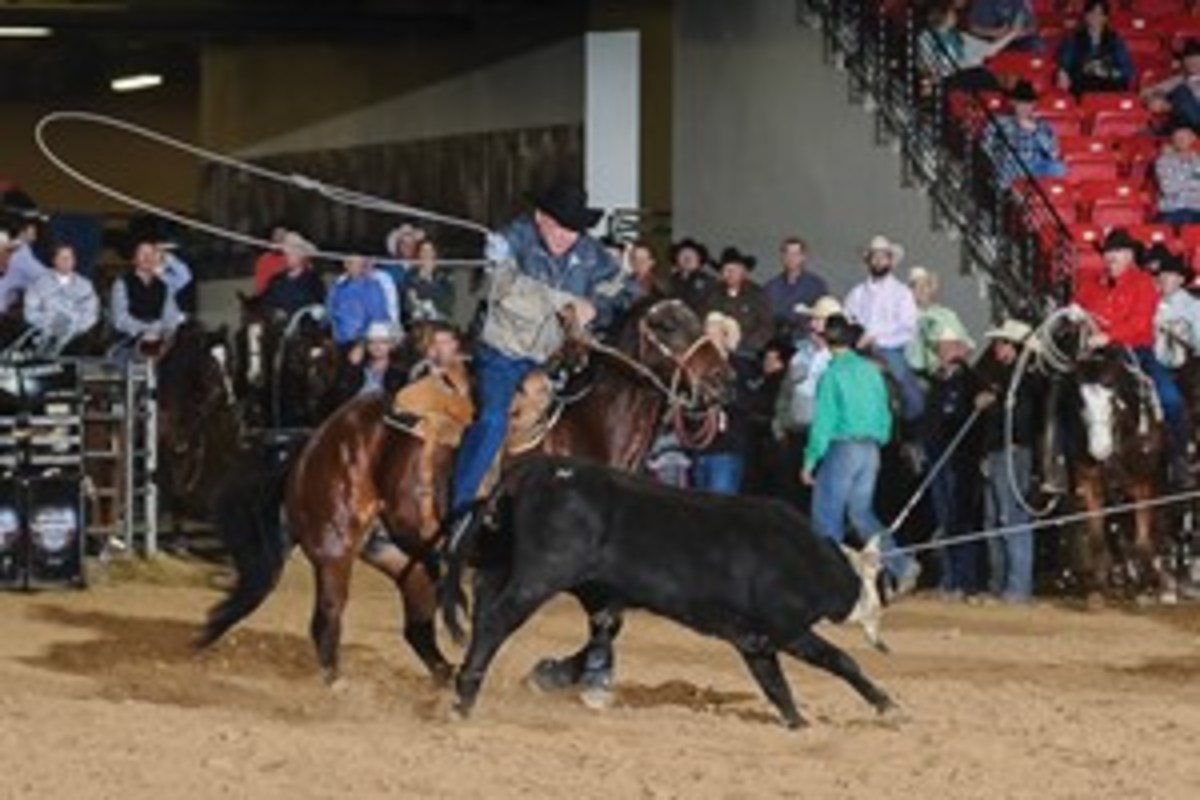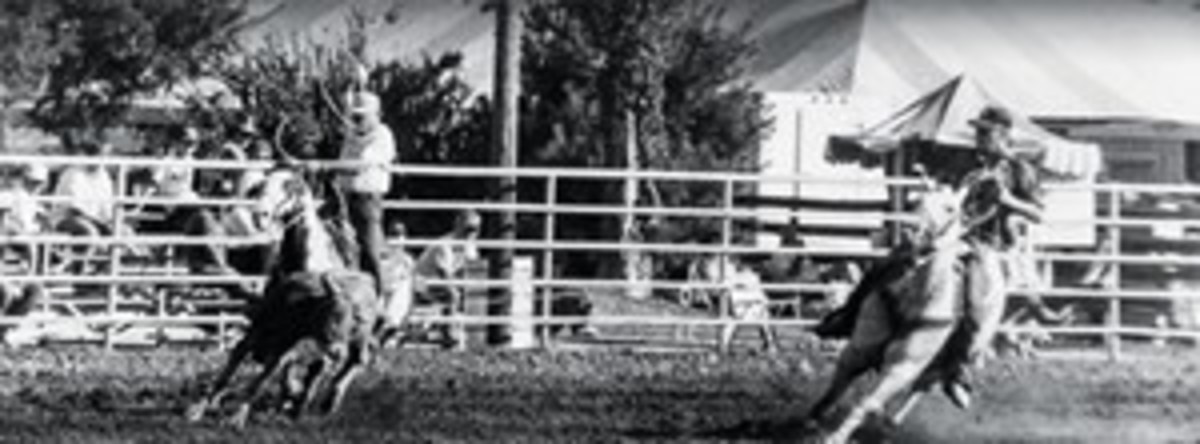It’s always been about the horses for Arkansas native, Ray Black. That’s why he ropes. Of course he loves the people, the camaraderie and really the event itself. But when you get right down to it, it’s still the horses that he loves the most.

“The main thing with me, I like to be with the horses. What I really like to do is get a young horse and show them what to do. I don’t want to ride one that might buck with me anymore, but once they get where they won’t buck I want to ride them. Now, getting them where they won’t buck isn’t a definite thing. One bucked me off last March. I had ridden him 11 months and I just hauled him the weekend before. It would have been better if I’d come off on the first jump, but I tried to ride him. Heck, it hurt.”
Black, 74, is now retired from 46 years in the brick business where he worked 40 years for Eureka Brick Company (now Acme Brick) and then owned Godfrey & Black Brick and Stone, with good friend, Larry Godfrey. They operated the business for six years before selling out. For the last eight years he’s been enjoying the opportunity to rope to his heart’s desire—which is every day, unless it’s raining, of course.
“It feels good,” Black admits. “That’s what I worked all those years to get to do. I’ve really, really enjoyed what I’ve done my entire life. I worked for a guy I really thought a lot of for 40 years, and then when I went to work for myself I had a really good partner and we had a good business. I’ve been very fortunate in my lifetime with what I’ve done.”
A regular at World Series events, both near to and far from his hometown of Clarksville, Ark., Black has attended every WSTR Finale with the exception of the first, and that’s only because he regrettably hadn’t heard of it. Albeit, that’s awfully surprising, considering he’s not only been competing for more than 50 years, but was a staple in the Arkansas roping community producing jackpots with long-time friend, Bob Hurley, back in the early days, just so he and the boys had some place to go.
You’ve always had horses?
I’ve had a horse since I was 7 years old. My uncles, they went to California and got to roping out there in the 40’s and 50’s. They brought me ropes and they showed me this and that about roping. Then I quit and went to work and didn’t do anything but work from the time I was about 17 until I was 27. I went back to roping calves and I got started team roping in about ’68.
What are your earliest memories roping?
They formed a local round up club when I was 11 years old, and my dad bought me a membership. Dale Meeks and Bob Hurley (father of Hall of Fame team roper, Bobby Hurley) were also members. We went to different schools but we’d meet at the round up club and rope calves and play and have a good time. We were friends from then on. We went to rodeos together until about ’85, the same time Bobby went to the RCA. Boy, it’s been a long time.
You produced some of the first ropings in Arkansas?
In 1969 Bob Hurley and I formed the Arkansas Team Roper’s Association and started having ropings around different parts of Arkansas. We just did it to have a place to go rope, not to make money. We did that about five years, then there got to be enough to go to. I think we charged $10 a man and you got three steers.

How did you get that association going?
Of course, we knew the boys who went to the rodeos and we knew a lot of the calf ropers and this and that. So when we decided to start it, we sent all those boys a letter and told them we were going to have a meeting and we’d like for them to come. About 30 guys showed up. We told them what we were going to do and they were all for it. Bob and I had some roping cattle, so we set up a roping in the next couple of weeks. We got about 30-40 teams at first. You could enter twice. By the time we quit we were getting 40-50.
Have you always roped the back side?
When I started, I started out heading, but I didn’t head very long. I wanted to go to rodeos with Dale and Bob and they said if I wanted to go I had to heel. So, I went to heeling. I guess it wasn’t my decision to start with, ha, but I don’t want to head anymore.
Do you have a most memorable win?
In ’85, I think, Harold Jones and I won Perry Bigbee’s Biggest East of the Mississippi. There were 700 something teams. It was a $20 a man roping. Perry always said, ‘Everyone’s got a $20.’ I think we won about $2,200 a man there.
You like a good horse. What about that Paint?
He was one of the good ones. He was a real, real athlete. Quicker than greased lightning. I hauled him probably four years. I sold him to a friend of mine, who sold him to a guy that had a boy and a girl who competed in high school rodeo. The girl ran barrels on him and the boy roped calves and headed and heeled on him. I was standing there watching the roping in Oklahoma City one year and this couple walked up to me and asked me if I had trained Stoney. They said, “We’d like to have another horse like him.” I said, “I understand because I would too.” He was an exceptional horse.
Over the years how many horses have you trained?
I’d say, 50, maybe 60. Of course, not all of them you buy are keepers. In fact, I’ve got some right now that I’ve got to get rid of. I probably had 40 or so what I’d call “good” ones, but just a handful that I’d call “great.” That’s the way it goes.

Have you had a favorite horse you raised?
Well, yes. I had a good-looking bay horse called GH for “Good Horse.” I got him from Bob Hurley as a 3-year-old. I trained him and he was very willing, good minded, and just athletically blessed. He would be about 28 now. He was one-of-a-kind. He was something. One of the best horses I’ve ever seen. I haven’t gone anywhere much people don’t ask me about GH. I rode him 14 years and then gave him to a friend of mine who all he did was brush him and maybe saddle him up a few times for a trail ride. A lot of those guys who knew him, aren’t roping anymore, but people, they remember GH.
Any horses go on to do well with other folks?
I trained a lot of horses over the years. My son and I trained a horse they won the BFI on. Wade Jess, he and Troy Frazier won it in 1989. It was a little buckskin horse we had.
What’s a little something no one knows about you?
In 1981 a car burned my house down. I parked a new car in my garage and a wire caught fire. It got everything I had except my saddles. When I was 49 I had bypass surgery. I was off for probably six or seven months before I went back to roping. Then, in 2006, I had it again. I had to have the surgery so I could rope, but I think the roping is what’s kept me ticking.
Do you still practice regularly?
Every day it’s not raining. I bought the place I live on in ’67 and the first thing I did was build an arena and a barn. We’ve been here about 50 years. (He raised two sons there with his wife, Bobbie.) We used to practice rodeo runs. We had to be just as fast as we could be. Now, we practice to catch. That’s what it is, just catch. It’s hard to get that through to your partner’s mind sometimes. You want to go catch them as fast as you can, but not faster than you can.
What’s your take on the evolution of this sport?
It’s just incredible. Really, I’ve been right there and witnessed it all, and I still can’t believe it.










